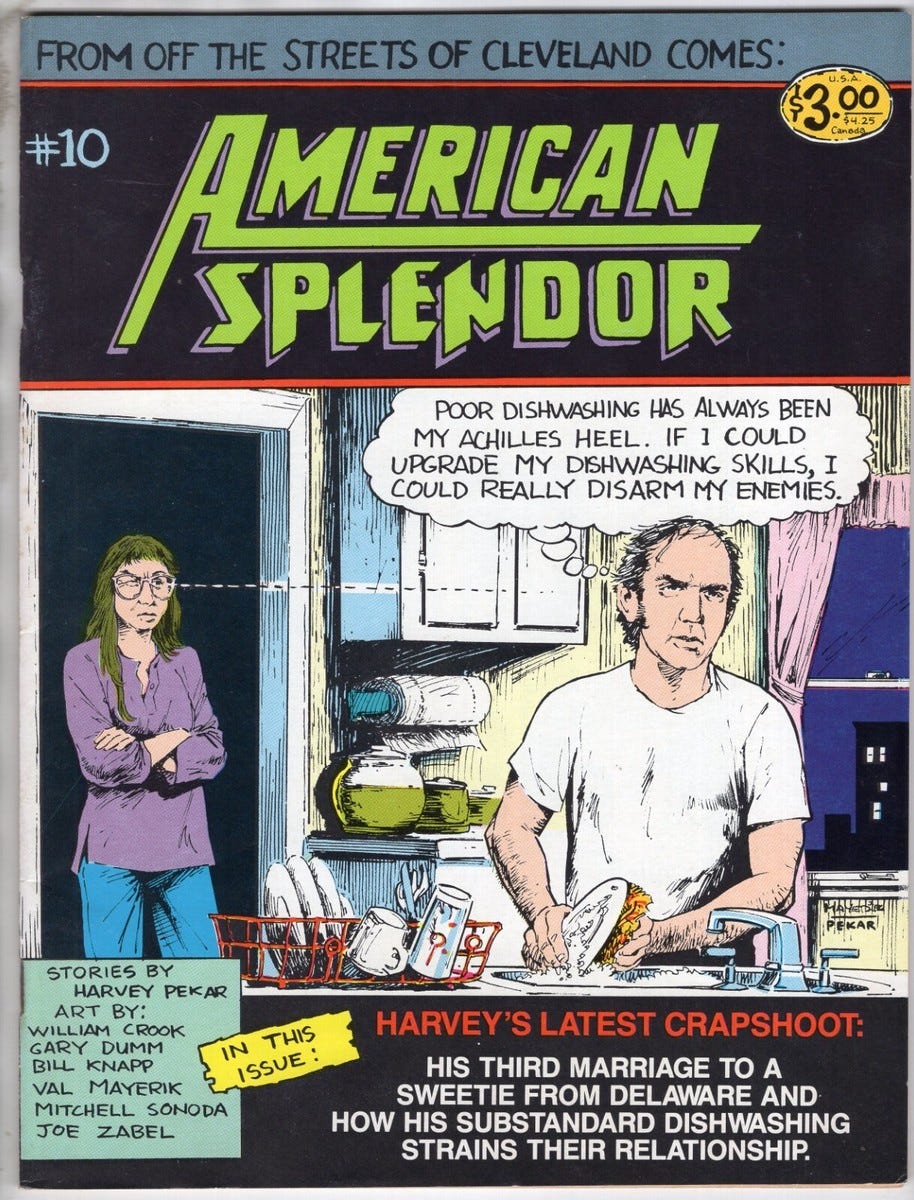The Nine Best Movies on the Creative Life
I share my favorite films on artistry from the 21st century
Here are the ground rules:
I’m picking movies about the creative life.
I’m excluding documentaries here, and focusing on actual scripted stories.
In this installment, I’m only including films released since 2000. At some later date, I will do the same for 20th century cinema.
I’m sure I’ve missed many worthy films. If you have suggestions, please share them in the comments.
Please support my work by taking out a premium subscription—for just $6 per month (even less if you sign up for a year).
The End of the Tour (2015)
My mid-life encounter with David Foster Wallace’s work had a profound impact on me—not only on how I write and think, but also how I deal with people and circumstances.
I’m a better writer and person because of it.
All this happened at a juncture when I thought my worldview was already full formed. And my writing style, too. I was in my mature years, and didn’t expect to encounter another author who would affect me at such a deep level.
I’m reminded of jazz musician Art Pepper, when he was serving time in San Quentin—he was already a renowned saxophonist, but felt compelled to reinvent his way of playing because of what he heard a younger man named John Coltrane do on record. At mid-career, Pepper rebuilt his entire musical persona because of that one outside force. In some ways, David Foster Wallace did that to me.
I know that DFW has his detractors, but frankly I don’t care. I’ve read all the bios and interviews and believe that this writer had a heart of gold—but, alas, married to frailties of psyche and body that led to his early death by suicide.
This has very little to do with the supposed difficulty of his books, especially Infinite Jest. Instead, I see DFW as an exponent of kindness and compassion who somehow found a way of bringing those values into the harsh, narcissistic world of postmodernist literature. I wouldn’t even have thought that possible until he showed me how it was done.
I will need to write about all this at some point. But today I just want to discuss this unconventional movie.
Almost every word actor Jason Segal says in his portrayal of author David Foster Wallace comes directly from the writer himself. That’s because this account of a book publicity tour is based on hours of tape recordings made by Rolling Stone journalist David Lipsky during his five days on the road with DFW in 1996.
After Wallace’s death from suicide in 2008, Lipsky turned those tapes into a book, and seven years later the book became a movie. But you feel David Foster Wallace’s presence in every scene. He ought to share screenwriter’s credits given how much of the dialogue originated from his actual voice.
Other writers on book tours are flashy and polished, but Wallace is unable to play the role of the triumphant novelist on display. He constantly questions his own motives, his own agendas, his own talent and choices—even when talking on the record with journalist Lipsky. You might think he was in therapy, not giving an interview for a profile in Rolling Stone.
Journalist Lipsky is not expecting this. You can tell that he envies David Foster Wallace—what could be more fulfilling than meeting fans as the hot new literary star on the scene? The conflict between Lipsky’s expectations and what he actually gets from Wallace is revelatory—and capture the reality of the writer’s life with an honesty I’ve never seen in any other film.
American Splendor (2003)
I still remember the first time I read Harvey Pekar’s comic book American Splendor—an indie magazine where he told his life story as if he were Batman or Superman. There was just one difference: They are superheroes, while Pekar worked as a file clerk at the VA Hospital in Cleveland.
I was blown away by this comic book memoir. So I tracked down other issues—which wasn’t easy back in those pre-Internet days. I devoured them, and starting telling my friends that they absolutely, positively must read American Splendor.
And then one evening, I got a phone call from Harvey Pekar—even though I was a total stranger. Just out of the blue. He had apparently read my book West Coast Jazz and wanted to play a record for me—which he proceeded to do over the phone.
This was one of the strangest conversations I’ve ever had. I kept trying to change the subject and ask him about American Splendor—but he refused to talk about it, and insisted on discussing the peculiar subjects that were on his mind.




